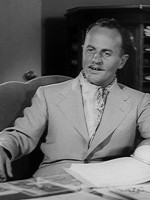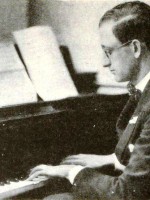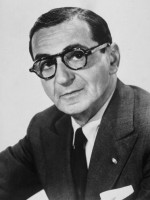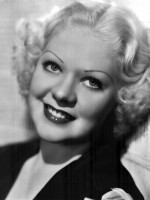Al Jolson is a Actor and Songs American born on 26 may 1886

Al Jolson (born Asa Yoelson; May 26, 1886 – October 23, 1950) was a Jewish-American singer, film actor, and comedian. At the peak of his career, he was dubbed "The World's Greatest Entertainer."
His performing style was brash and extroverted, and he popularized a large number of songs that benefited from his "shamelessly sentimental, melodramatic approach". Numerous well-known singers were influenced by his music, including Bing Crosby, David Bowie, Bob Dylan, Rod Stewart and others. Dylan once referred to him as "somebody whose life I can feel". Broadway critic Gilbert Seldes compared him to the Greek god Pan, claiming that Jolson represented "the concentration of our national health and gaiety."
In the 1930s he was America's most famous and highest-paid entertainer. Between 1911 and 1928, Jolson had nine sell-out Winter Garden shows in a row, more than 80 hit records, and 16 national and international tours. Although he is best remembered today as the star of the first 'talking picture', The Jazz Singer (1927), he later starred in a series of successful musical films throughout the 1930s. After the attack on Pearl Harbor, he was the first star to entertain troops overseas during World War II. After a period of inactivity, his stardom returned with The Jolson Story (1946), for which Larry Parks played Jolson, with the singer dubbing for Parks. The formula was repeated in a sequel, Jolson Sings Again (1949).
In 1950, he again became the first star to entertain GIs on active service in the Korean War, performing 42 shows in 16 days. He died just weeks after returning to the U.S., partly owing to the physical exertion of performing. Defense Secretary George Marshall posthmously awarded him the Medal of Merit.
According to the St. James Encyclopedia of Popular Culture, "Jolson was to jazz, blues, and ragtime what Elvis Presley was to rock 'n' roll." Being the first popular singer to make a spectacular "event" out of singing a song, he became a "rock star" before the dawn of rock music. His specialty was performing on stage runways extending out into the audience. He would run up and down the runway, and across the stage, "teasing, cajoling, and thrilling the audience," often stopping to sing to individual members; all the while the "perspiration would be pouring from his face, and the entire audience would get caught up in the ecstasy of his performance." According to music historian Larry Stempel, "No one had heard anything quite like it before on Broadway." Author Stephen Banfield agreed, writing that Jolson's style was "arguably the single most important factor in defining the modern musical...."
Jolson also enjoyed performing in blackface makeup, a theatrical convention since the mid 19th century. With his unique and dynamic style of singing black music, such as jazz and blues, he was later credited with single-handedly introducing African-American music to white audiences. As early as 1911 he became known for fighting against black discrimination on Broadway.
Jolson was a political and economic conservative, supporting both Warren G. Harding in 1920 and Calvin Coolidge in 1924 for president of the United States. As "one of the biggest stars of his time, [he] worked his magic singing Harding, You're the Man for Us to enthralled audiences ... [and] was subsequently asked to perform Keep Cool with Coolidge four years later. ... Jolson, like the men who ran the studios, was the rare showbiz Republican." Although a Republican, Jolson publicly campaigned for Democrat Franklin Delano Roosevelt in 1932. By the next presidential election (1936), he was back to supporting Republican Alf Landon and would not support another Democrat for president during his life.
Married life
In 1906, while living in San Francisco, Jolson met dancer Henrietta Keller, and the two engaged in a year-long relationship before marrying in September 1907. In 1918, however, Henrietta — tired of what she reputedly considered his womanizing and refusal to come home after shows — filed for divorce (1919).
In 1920, Jolson began a relationship with Broadway actress Alma Osbourne (known professionally as Ethel Delmar); the two were married in August 1922 but she divorced Jolson in 1928.
Ruby Keeler
In the summer of 1928, Jolson met young tap dancer, and later actress, Ruby Keeler in Los Angeles (Jolson would claim it was at Texas Guinan's night club) and was dazzled by her on sight. Three weeks later, Jolson saw a production of George M. Cohan's Rise of Rosie O'Reilly, and noticed she was in the show's cast. Now knowing she was going about her Broadway career, Jolson attended another one of her shows, Show Girl, and rose from the audience and engaged in her duet of "Liza". After this moment, the show's producer, Florenz Ziegfeld, asked Jolson to join the cast and continue to sing duets with Keeler. Jolson accepted Ziegfeld's offer and during their tour with Ziegfeld, the two started dating and were married on September 21, 1928. In 1935, Al and Ruby adopted a son, Jolson's first child, whom they named "Al Jolson Jr." In 1939, however — despite a marriage that was considered to be more successful than his previous ones — Keeler left Jolson, and later married John Homer Lowe, with whom she would have four children and remain married until his death in 1969.
Erle Galbraith
In 1944, while giving a show at a military hospital in Hot Springs, Arkansas, Jolson met a young X-ray technologist, Erle Galbraith. He became fascinated with her and more than a year later he was able to track her down and hired her as an actress while he served as a producer at Columbia Pictures. After Jolson, whose health was still scarred from his previous battle with malaria, was hospitalized in the winter of 1945, Erle visited him and the two quickly began a relationship. They were married on March 22, 1945. During their marriage, the Jolsons adopted two children, Asa Jr. (born 1948) and Alicia (born 1949), and remained married until his death in 1950.
After a year and a half of marriage, his new wife had never seen him perform in front of an audience, and the first occasion came unplanned. As told by actor comedian Alan King, it happened during a dinner by the New York Friars' Club at the Waldorf Astoria in 1946, honoring the career of Sophie Tucker. Jolson and his wife were in the audience along with a thousand others, and George Jessel was MC. He asked Al, privately, to perform at least one song. Jolson replied, "No, I just want to sit here." Then later, without warning, during the middle of the show, Jessel says, "Ladies and gentlemen, this is the easiest introduction I ever had to make. The world's greatest entertainer, Al Jolson." King recalls what happened next:The place is going wild. Jolson gets up, takes a bow, sits down. . . people start banging with their feet, and he gets up, takes another bow, sits down again. It's chaos, and slowly, he seems to relent. He walks up onto the stage . . . kids around with Sophie and gets a few laughs, but the people are yelling, 'Sing! Sing! Sing!' . . . Then he says, 'I'd like to introduce you to my bride,' and this lovely young thing gets up and takes a bow. The audience doesn't care about the bride, they don't even care about Sophie Tucker. 'Sing! Sing! Sing!' they're screaming again.
'My wife has never seen me entertain', Jolson says, and looks over toward Lester Lanin, the orchestra leader: 'Maestro, is it true what they say about Dixie?'
Closeness with his brother Harry
Despite their close relationship growing up, Harry did show some disdain for Al's success over the years. Even during their time with Jack Palmer, Al was rising in popularity while Harry was fading. After separating from Al and Jack, Harry's career in show business, however, sank greatly. On one occasion—which was another factor in his on-off relationship with Al—Harry offered to be Al's agent, but Al rejected the offer, worried about the pressure that he would have faced from his producers for hiring his brother as his agent. Shortly after Harry's wife Lillian died in 1948, Harry and Al became close once again.
Source : Wikidata
Al Jolson

- Infos
- Photos
- Best films
- Family
- Characters
- Awards
Birth name Asa Yoelson
Nationality USA
Birth 26 may 1886
Death 23 october 1950 (at 64 years) at San Francisco (USA)
Nationality USA
Birth 26 may 1886
Death 23 october 1950 (at 64 years) at San Francisco (USA)
Al Jolson (born Asa Yoelson; May 26, 1886 – October 23, 1950) was a Jewish-American singer, film actor, and comedian. At the peak of his career, he was dubbed "The World's Greatest Entertainer."
His performing style was brash and extroverted, and he popularized a large number of songs that benefited from his "shamelessly sentimental, melodramatic approach". Numerous well-known singers were influenced by his music, including Bing Crosby, David Bowie, Bob Dylan, Rod Stewart and others. Dylan once referred to him as "somebody whose life I can feel". Broadway critic Gilbert Seldes compared him to the Greek god Pan, claiming that Jolson represented "the concentration of our national health and gaiety."
In the 1930s he was America's most famous and highest-paid entertainer. Between 1911 and 1928, Jolson had nine sell-out Winter Garden shows in a row, more than 80 hit records, and 16 national and international tours. Although he is best remembered today as the star of the first 'talking picture', The Jazz Singer (1927), he later starred in a series of successful musical films throughout the 1930s. After the attack on Pearl Harbor, he was the first star to entertain troops overseas during World War II. After a period of inactivity, his stardom returned with The Jolson Story (1946), for which Larry Parks played Jolson, with the singer dubbing for Parks. The formula was repeated in a sequel, Jolson Sings Again (1949).
In 1950, he again became the first star to entertain GIs on active service in the Korean War, performing 42 shows in 16 days. He died just weeks after returning to the U.S., partly owing to the physical exertion of performing. Defense Secretary George Marshall posthmously awarded him the Medal of Merit.
According to the St. James Encyclopedia of Popular Culture, "Jolson was to jazz, blues, and ragtime what Elvis Presley was to rock 'n' roll." Being the first popular singer to make a spectacular "event" out of singing a song, he became a "rock star" before the dawn of rock music. His specialty was performing on stage runways extending out into the audience. He would run up and down the runway, and across the stage, "teasing, cajoling, and thrilling the audience," often stopping to sing to individual members; all the while the "perspiration would be pouring from his face, and the entire audience would get caught up in the ecstasy of his performance." According to music historian Larry Stempel, "No one had heard anything quite like it before on Broadway." Author Stephen Banfield agreed, writing that Jolson's style was "arguably the single most important factor in defining the modern musical...."
Jolson also enjoyed performing in blackface makeup, a theatrical convention since the mid 19th century. With his unique and dynamic style of singing black music, such as jazz and blues, he was later credited with single-handedly introducing African-American music to white audiences. As early as 1911 he became known for fighting against black discrimination on Broadway.
Biography
PoliticsJolson was a political and economic conservative, supporting both Warren G. Harding in 1920 and Calvin Coolidge in 1924 for president of the United States. As "one of the biggest stars of his time, [he] worked his magic singing Harding, You're the Man for Us to enthralled audiences ... [and] was subsequently asked to perform Keep Cool with Coolidge four years later. ... Jolson, like the men who ran the studios, was the rare showbiz Republican." Although a Republican, Jolson publicly campaigned for Democrat Franklin Delano Roosevelt in 1932. By the next presidential election (1936), he was back to supporting Republican Alf Landon and would not support another Democrat for president during his life.
Married life
In 1906, while living in San Francisco, Jolson met dancer Henrietta Keller, and the two engaged in a year-long relationship before marrying in September 1907. In 1918, however, Henrietta — tired of what she reputedly considered his womanizing and refusal to come home after shows — filed for divorce (1919).
In 1920, Jolson began a relationship with Broadway actress Alma Osbourne (known professionally as Ethel Delmar); the two were married in August 1922 but she divorced Jolson in 1928.
Ruby Keeler
In the summer of 1928, Jolson met young tap dancer, and later actress, Ruby Keeler in Los Angeles (Jolson would claim it was at Texas Guinan's night club) and was dazzled by her on sight. Three weeks later, Jolson saw a production of George M. Cohan's Rise of Rosie O'Reilly, and noticed she was in the show's cast. Now knowing she was going about her Broadway career, Jolson attended another one of her shows, Show Girl, and rose from the audience and engaged in her duet of "Liza". After this moment, the show's producer, Florenz Ziegfeld, asked Jolson to join the cast and continue to sing duets with Keeler. Jolson accepted Ziegfeld's offer and during their tour with Ziegfeld, the two started dating and were married on September 21, 1928. In 1935, Al and Ruby adopted a son, Jolson's first child, whom they named "Al Jolson Jr." In 1939, however — despite a marriage that was considered to be more successful than his previous ones — Keeler left Jolson, and later married John Homer Lowe, with whom she would have four children and remain married until his death in 1969.
Erle Galbraith
In 1944, while giving a show at a military hospital in Hot Springs, Arkansas, Jolson met a young X-ray technologist, Erle Galbraith. He became fascinated with her and more than a year later he was able to track her down and hired her as an actress while he served as a producer at Columbia Pictures. After Jolson, whose health was still scarred from his previous battle with malaria, was hospitalized in the winter of 1945, Erle visited him and the two quickly began a relationship. They were married on March 22, 1945. During their marriage, the Jolsons adopted two children, Asa Jr. (born 1948) and Alicia (born 1949), and remained married until his death in 1950.
After a year and a half of marriage, his new wife had never seen him perform in front of an audience, and the first occasion came unplanned. As told by actor comedian Alan King, it happened during a dinner by the New York Friars' Club at the Waldorf Astoria in 1946, honoring the career of Sophie Tucker. Jolson and his wife were in the audience along with a thousand others, and George Jessel was MC. He asked Al, privately, to perform at least one song. Jolson replied, "No, I just want to sit here." Then later, without warning, during the middle of the show, Jessel says, "Ladies and gentlemen, this is the easiest introduction I ever had to make. The world's greatest entertainer, Al Jolson." King recalls what happened next:The place is going wild. Jolson gets up, takes a bow, sits down. . . people start banging with their feet, and he gets up, takes another bow, sits down again. It's chaos, and slowly, he seems to relent. He walks up onto the stage . . . kids around with Sophie and gets a few laughs, but the people are yelling, 'Sing! Sing! Sing!' . . . Then he says, 'I'd like to introduce you to my bride,' and this lovely young thing gets up and takes a bow. The audience doesn't care about the bride, they don't even care about Sophie Tucker. 'Sing! Sing! Sing!' they're screaming again.
'My wife has never seen me entertain', Jolson says, and looks over toward Lester Lanin, the orchestra leader: 'Maestro, is it true what they say about Dixie?'
Closeness with his brother Harry
Despite their close relationship growing up, Harry did show some disdain for Al's success over the years. Even during their time with Jack Palmer, Al was rising in popularity while Harry was fading. After separating from Al and Jack, Harry's career in show business, however, sank greatly. On one occasion—which was another factor in his on-off relationship with Al—Harry offered to be Al's agent, but Al rejected the offer, worried about the pressure that he would have faced from his producers for hiring his brother as his agent. Shortly after Harry's wife Lillian died in 1948, Harry and Al became close once again.
Best films
Usually with
Filmography of Al Jolson (29 films)
Actor

GoodFellas (1990)
, 2h26Directed by Martin Scorsese
Origin USA
Genres Drama, Thriller, Biography, Mob film, Action, Noir, Crime
Themes Films about films, Films about immigration, Mafia films, Medical-themed films, Seafaring films, Films about drugs, Transport films, Gangster films
Actors Robert De Niro, Ray Liotta, Joe Pesci, Paul Sorvino, Lorraine Bracco, Frank Sivero
Roles Jakie Rabinowitz (uncredited)
Rating84%





Henry Hill says, "As far back as I can remember, I always wanted to be a gangster", referring to his idolizing the Lucchese crime family gangsters in his blue-collar, predominantly Italian-American neighborhood in East New York, Brooklyn. Wanting to be part of something significant, Henry quits school and goes to work for them. He is able to make a living for himself and learns the two most important lessons in life: "Never rat on your friends, and always keep your mouth shut", the advice given to him after being acquitted of criminal charges early in his career.
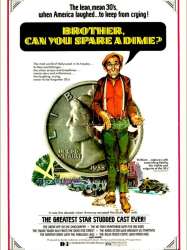 , 1h50
, 1h50Directed by Philippe Mora
Origin United-kingdom
Genres Documentary, Historical
Themes Documentary films about historical events
Actors Walt Disney, Bing Crosby, Marlene Dietrich, Charlie Chaplin, Fred Astaire, James Dunn
Roles Self (archive footage)
Rating70%





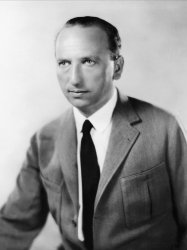
The Story of Will Rogers (1952)
, 1h49Directed by Michael Curtiz
Origin USA
Genres Drama, Biography, Comedy, Western
Actors Jane Wyman, Slim Pickens, Noah Beery, Jr, Carl Benton Reid, Steve Brodie, Eve Miller
Rating65%






Purple Heart Diary (1951)
, 1h13Directed by Richard Quiney
Origin USA
Genres Drama
Actors Frances Langford, Judd Holdren, Ben Lessy, Brett King, Lyle Talbot, Aline Towne
Roles Al Jolson (archive footage) (uncredited)
Rating68%





During World War II, a singing trio goes out on tour entertaining wounded soldiers. They get involved with a severely wounded soldier who is in love with a nurse.
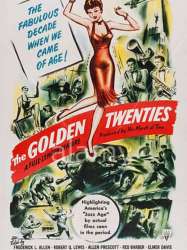
The Golden Twenties (1950)
, 1h8Origin USA
Genres Documentary
Actors Charlie Chaplin, Rudolph Valentino, Robert Q. Lewis, John Barrymore, Vilma Bánky, Irving Berlin
Roles Self (archive footage)
Rating65%





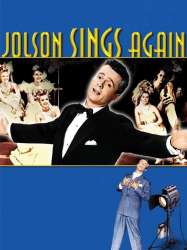
Jolson Sings Again (1949)
, 1h36Directed by Henry Levin
Origin USA
Genres Drama, Biography, Musical
Themes Films about music and musicians, Musical films
Actors Larry Parks, Barbara Hale, William Demarest, Ludwig Donath, Bill Goodwin, Myron McCormick
Roles Himself (singing voice) (uncredited)
Rating65%





In this follow-up to The Jolson Story, we pick up the singer's career just as he has returned to the stage after a premature retirement. But his wife has left him and the appeal of the spotlight is not what it used to be. This time Jolson (Larry Parks) trades in the stage for life in the fast lane: women, horses, travel. His father becomes increasingly concerned about his frivolous lifestyle. With the death of his mother (Tamara Shayne) and the beginning of World War II, Jolson comes back to earth—and returns to the stage.

The Jolson Story (1946)
, 2h8Directed by Alfred E. Green
Origin USA
Genres Drama, Biography, Musical
Themes Films about music and musicians, Musical films
Actors Larry Parks, Evelyn Keyes, William Demarest, Bill Goodwin, Ludwig Donath, Scotty Beckett
Roles Singing Voice / Al Jolson (uncredited)
Rating71%





American burlesque performer Steve Martin (William Demarest) offers to play a song for his audience, if they agree to sing along. Only one person does sing, a young boy named Asa Yoelson (Scotty Beckett). Steve is bowled over by the boy's voice, but Asa realizes he should be singing at the synagogue with his father, Cantor Yoelson (Ludwig Donath). Asa arrives late, and is later reprimanded by his strict father. Asa is reluctant to explain where he was, but Steve Martin visits the Yoelsons' home. He explains that he heard Asa sing at the burlesque house, and that he wants Asa to be part of his act. Papa Yoelson refuses to consider it.

Rhapsody in Blue (1945)
, 2h15Directed by Irving Rapper
Origin USA
Genres Drama, Biography, Musical, Romance
Themes Films about music and musicians, Films about classical music and musicians, Jazz films, Musical films
Actors Robert Alda, Joan Leslie, Alexis Smith, Hazel Scott, Julie Bishop, Charles Coburn
Roles Al Jolson
Rating69%





La relation tumultueuse du compositeur George Gershwin avec la chanteuse Julie Adams.
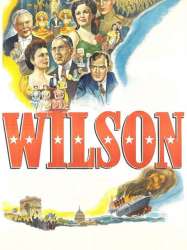
Wilson (1944)
, 2h34Directed by Otto Brower, Henry King
Origin USA
Genres Drama, Biography, Comedy, Historical, Musical, Romance
Themes Politique, Political films, Children's films
Actors Charles Coburn, Alexander Knox, Geraldine Fitzgerald, Thomas Mitchell, Cedric Hardwicke, Ruth Nelson
Rating63%





The story begins in 1909, a time when Wilson (Alexander Knox) is best known as the head of Princeton University and the author of several books on the democratic process. Urged into running for Governor of New Jersey by the local political machine, Wilson soon proves that he is his own man, beholden to no one-and that he is dedicated to the truth at any cost.
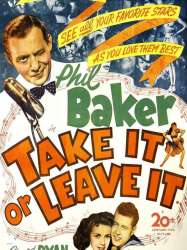
Take It or Leave It (1944)
, 1h10Directed by Benjamin Stoloff
Origin USA
Actors Stanley Prager, Nana Bryant, Carleton Young, Phil Silvers, Frankie Darro, Lynn Bari
Roles (archive footage) (uncredited)
Rating57%





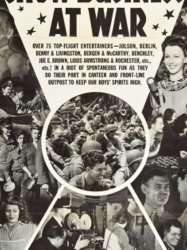
Show-Business at War (1943)
, 17minutesOrigin USA
Genres Documentary
Themes Documentary films about business, Documentary films about the film industry, Documentary films about war, Documentary films about historical events, Documentary films about cities, Political films, Documentary films about World War II
Actors Carole Lombard, Irving Berlin, Alfred Lunt, Loretta Young, Walt Disney, John Ford
Roles Self
Rating70%






Hollywood Cavalcade (1939)
, 1h37Directed by Irving Cummings, Buster Keaton, Malcolm St. Clair, Snub Pollard
Origin France
Genres Drama, Comedy, Historical
Actors Alice Faye, Don Ameche, J. Edward Bromberg, Alan Curtis, Stuart Erwin, Jed Prouty
Roles Al Jolson
Rating64%





À partir de 1913, le réalisateur Connors découvre la chanteuse Molly Adair. En devenant une star, elle épouse un acteur, alors Connors les vire. Elle le demande comme réalisateur de son prochain film. De nombreuses étoiles silencieuses montrées faisant la transition vers le son.

Rose of Washington Square (1939)
, 1h26Directed by Gregory Ratoff
Origin USA
Genres Drama, Musical
Themes Films about music and musicians, Musical films, Children's films
Actors Tyrone Power, Alice Faye, Al Jolson, William Frawley, Moroni Olsen, Joyce Compton
Roles Ted Cotter
Rating66%





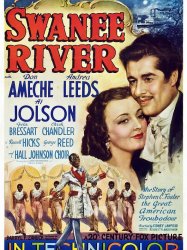
Swanee River (1939)
, 1h24Directed by Sidney Lanfield
Origin USA
Genres Drama, Thriller, Biography, Musical
Themes Films about music and musicians, Musical films, Political films
Actors Don Ameche, Andrea Leeds, Al Jolson, Felix Bressart, Chick Chandler, Russell Hicks
Roles Edwin P. Christy
Rating62%





The family of Stephen Foster (Ameche) insists that he accept a seven-dollar-a-week shipping clerk job in Cincinnati, but he prefers to write songs. Stephen's prospective father-in-law Andrew McDowell has no faith in Stephen, who wants to write "music from the heart of the simple people of the South." The struggling composer is content to sell "Oh! Susanna" for fifteen dollars to minstrel singer E. P. Christy and allows Christy to take credit as its writer.
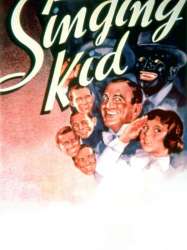
The Singing Kid (1936)
, 1h25Directed by William Keighley
Origin USA
Genres Drama, Musical
Actors Al Jolson, Sybil Jason, Beverly Roberts, Edward Everett Horton, Lyle Talbot, Allen Jenkins
Roles Al Jackson
Rating62%





 Connection
Connection

